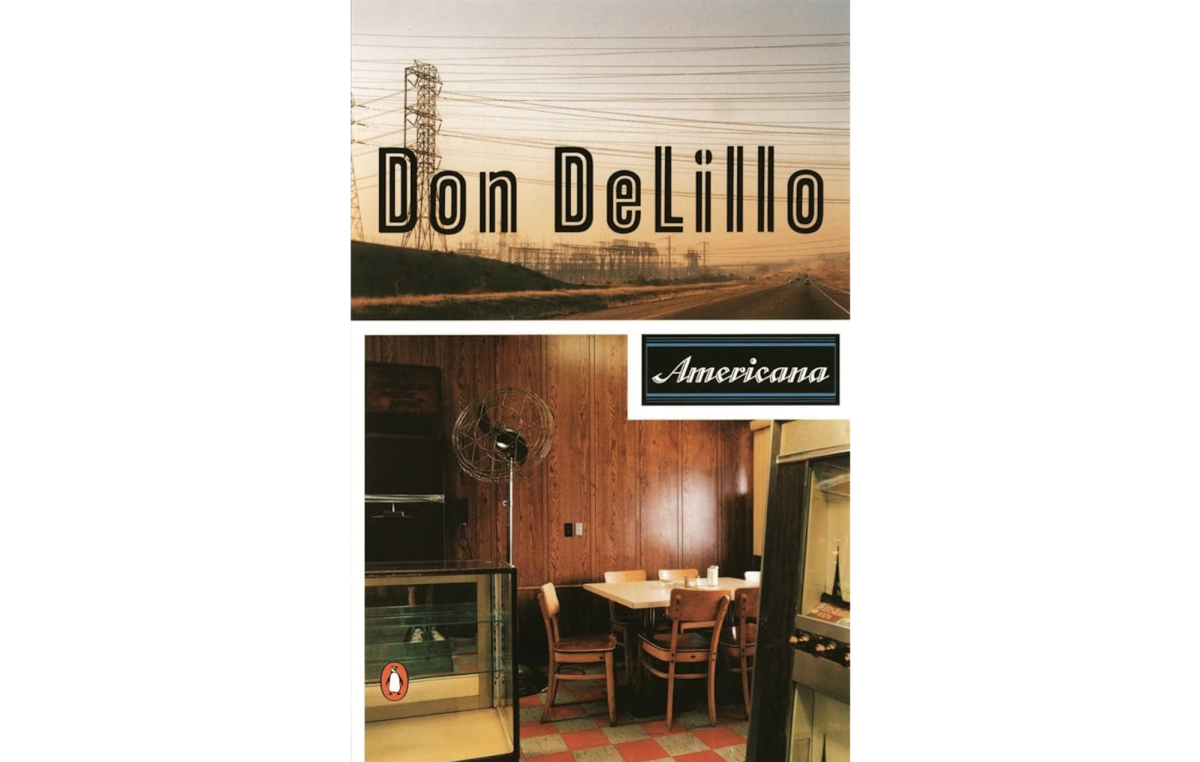An ambiguous, meandering meditation on the creative process, the power of film over reality, and the essence of life in modern America, “Americana” by Don DeLillo has an explicable beauty.
DeLillo has an eye for aesthetic beauty and spiritual meaning in the mundane.
“They were all breathing smoke,” he writes, “and in the quiet and unfaltering tenor of the snow they looked like ancient men engaged in timeless professions, shepherds in a field or patient fishermen whose lines sprawl in the water of a winter lake.” He is describing the protagonist’s father and his neighbor’s fathers shoveling snow as Christmas approaches. “Americana” follows David Bell, who is struck throughout the novel by the odd power and artful nature of everyday life. He describes the men at his high-up department in a media company filling the bathroom to brush their teeth after lunch. “Those moments in the washroom, with a dozen men sawing away at their teeth, were perhaps the worst times of all. We seemed to be no more than electronic signals and we moved through time and space with the stutter and shadowed insanity of a TV commercial.” To me, the significance DeLillo extracts from scenes like this gives the novel a sense of power and purpose, despite its slow pace and wandering plot, although to some, these elements combined give a feel of meaningless pretension and unnecessary wordiness. Some of my favorite passages from the book are the imagined radio broadcasts of one of David’s friends, mesmerizing and borderline nonsensical stream-of-consciousness philosophy, political commentary and rich poetry.
David, like every character of DeLillo’s, is very odd and at times offputting in his internal monologue, although he is socially adept and attractive. “I was an extremely handsome young man,” he comments, beginning the book’s second chapter. “The objectivity which time slowly fashions, and the self-restraint it demolishes, enabled me to make this statement without recourse to the usual modest disclaimers which give credit to one’s parents or grandparents in the manner of a sires-and-dams book.” David frequently seeks what he calls “ego-moments.” These are social interactions of one kind or another that confirm his power of attraction over women, be it a knowing glance at someone’s wife, or some other self-serving exercise in flirtation. He often attempts to seduce, and conducts affairs involving pointless pain and manipulation, deriving much self-worth from his desirability. But David is always, to some level, self-aware. “I had almost the same kind of relationship with my mirror that many of my contemporaries had with their analysts. When I began to wonder who I was, I took the simple step of lathering my face and shaving. It all became so clear, so wonderful. I was blue-eyed David Bell. Obviously, my life depended on this fact,” he says. Similar to America herself perhaps, David is overshadowed by his own outward image, the ideas and visions of who he ought to be all mixed up with, or maybe indistinguishable from, who he actually is.
David comes from privilege, growing up with a father rich in the advertising business. The reader is brought through his comfortable, albeit personally troubled childhood, his time exploring avante-garde film at a private liberal arts college, and his comfortable job high up in TV production, handed to him through nepotism.
Despite all of this, Bell is anything but internally boring. In fact he is deeply creative, perceptive, intelligent, and eccentric. The novel chronicles his boredom and existential angst existing in a modern corporate setting. He is sick of the endless social games, promotions, secret meetings, secretary flirtations and pointless conversations. He is only pushed further to the edge by the cancellation of his show “Soliloquy,” each episode an individual recounting their entire life story to a camera. Opportunity presents itself to David as he is sent off on a road trip across the country to film a Native American tribe for his network, along with his similarly eccentric and artistic coworker Sullivan, who he desires, yet who eludes him, and few other strange friends.
As he travels the country, struck by inspiration, he abandons his job, his original trip, everything, to work on production of an extremely experimental, semi-autobiographical film, exploring his own life, and life in modern America. “What I was engaged in was merely a literary venture, an attempt to find pattern and motive, to make of something wild a squeamish thesis on the essence of the nation’s soul,” David says, in a statement equally applicable to his film, as to the novel itself. The book often feels meta in its commentary on the artistic process. Through David’s slow process of unraveling, his self-destructive indulgence in a powerful creative impulse, “Americana” explores what it means and what it might cost to truly make great art.
“Americana” is not altogether cohesive, nor is it a page-turner, nor does it have a definite statement to make, at least not to me, but it stuck with me deeply. DeLillo’s narrative and prose carry an unnamable and abstract feel of intrigue and suggestion, of haunting significance, making the work absolutely worthwhile.














